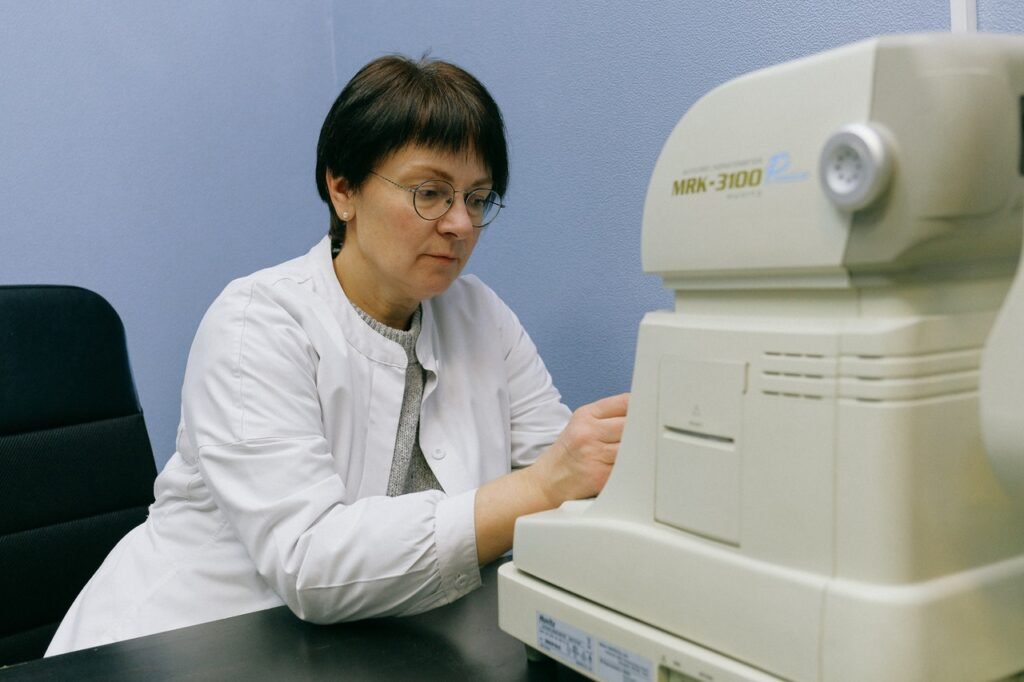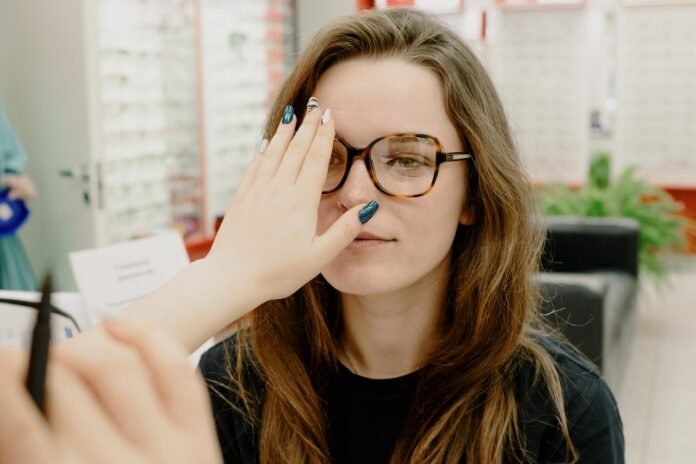Many of us don’t realize just how important good eyesight is. Of all the five senses, our vision is the sense we rely on the most. Our eyes are the means with which we perceive up to 80% of all impressions, so it makes sense that we’d do everything in our power to preserve their health and maintain good eyesight. Below, five useful tips to maintain optimal vision as you age.
Wear sunglasses and protective eyewear
Spending time outside and soaking up the sunlight is essential in order for our body to receive the much-needed vitamin D, but you want to make sure that you protect your eyes whenever you go outside. And don’t just go for any pair of sunglasses. Instead, invest in a pair that will give your eyes the proper protection against the harmful UVA and UVB rays, which are known to accelerate the formation of cataracts.
Also, if you’re working with hazardous materials, performing construction work, or making home repairs, you want to make sure that you have protective eyewear on at all times, be it goggles or safety glasses. Given how more than 2 million eye injuries occur in the U.S. every year, you should definitely make eye protection a priority.
Take good care of your contact lenses
A lot of people who have prescriptions for glasses will consider switching to lenses at some point. Their reasons may vary – some believe that lenses will give them more confidence, some like the freedom and flexibility that allows them to lead an active lifestyle, while others simply find them more convenient.
That being said, contact lenses do require more work than glasses and could possibly carry more health risks compared to glasses. This is why it’s important to follow the care instructions provided by your ophthalmologist and ensure proper contact lens use. To prevent painful eye infections, avoid sleeping in contacts unless they’re made for overnight wear, reusing disposable contact lenses, and using contact lens solutions that have expired.
Early intervention is imperative
 Photo by Anna Shvets from Pexels
Photo by Anna Shvets from Pexels
Most eye conditions are treatable if they’re diagnosed early on and given the proper treatment, whether we’re talking about AMD or glaucoma. If left untreated, they could possibly lead to serious vision loss and even blindness. Therefore, early intervention is imperative. Even if you’re not suffering from serious eye conditions, you should consult with an ophthalmologist and look for ways to improve your eyesight, especially if you wear glasses or lenses.
Some of the safest and most efficient procedures available today are performed using the most sophisticated laser technologies for vision correction, and they can also reduce or eliminate the need for wearing contact lenses or glasses. These procedures, according to experts for Lasik eye surgery in NYC, also involve minimal post-op recovery, with the vision improving almost instantly. Consult with your ophthalmologist, and they’ll help you determine which vision correction option is best for you.
Go for regular eye screenings
Speaking of prevention and early detection of eye conditions, getting regular eye screenings is another essential step towards maintaining good eyesight and ensuring optimal vision. Even if you’re an adult with no risk factors for eye conditions and aren’t experiencing any signs of eye disease, you should get a baseline eye exam when you’re 40.
This is the age when you may begin to experience changes in vision and the early signs of the disease may start to occur. If your doctor notices a potential vision problem during the screening, you’ll need to schedule an appointment with an ophthalmologist who will then recommend the necessary treatment.
Find out if you’re at risk for eye diseases
As we age, we’re more prone to experiencing changes in vision, and we may develop certain age-related eye diseases. These include glaucoma, cataracts, diabetic retinopathy, and macular degeneration. That being said, some individuals are at a higher risk of developing eye diseases than others. This includes individuals who, have certain eye conditions and diseases running in the family, and also individuals who are overweight or obese, or who suffer from certain health conditions such as diabetes or high blood pressure.
The best way to find out if you’re at risk for eye diseases is to consult with your doctor. You should also learn as much as you can about your family history. In doing so, you can lower the risk of developing certain eye diseases and preserve your eye health.
Wrapping up
Good eyesight is crucial for performing well in everyday life, but more often than not, we take our vision for granted. However, if you take good care of your eyes now, you can prevent a range of eye problems, later on, thus ensuring a brighter and much clearer future to look forward to.























